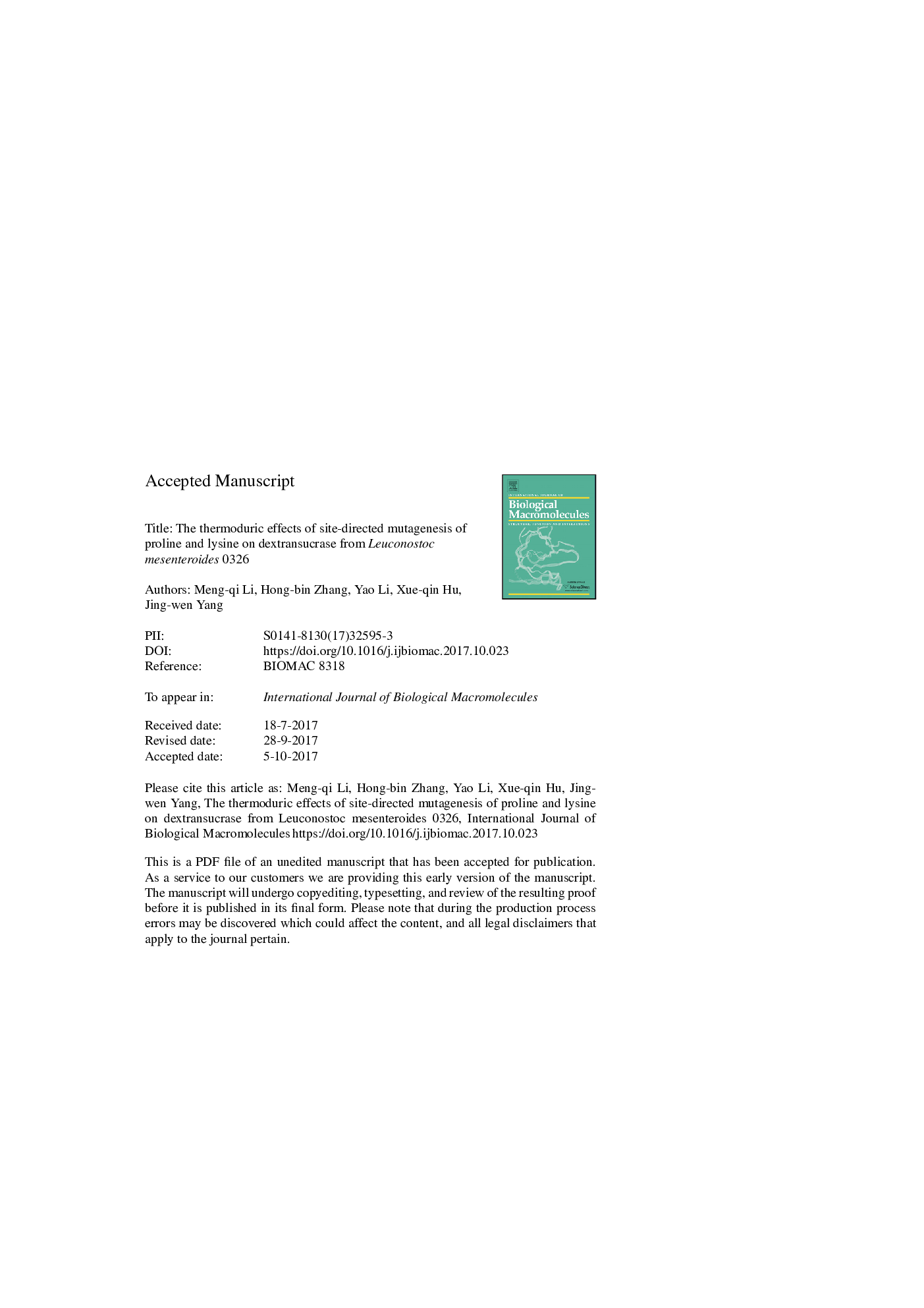| Article ID | Journal | Published Year | Pages | File Type |
|---|---|---|---|---|
| 8328739 | International Journal of Biological Macromolecules | 2018 | 27 Pages |
Abstract
Dextransucrase (DSR, EC2.4.5.1) from Leuconostoc mesenteroides 0326 which catalyzes sucrose to produce dextran, are popularly used in food and medicine industries. However, its poor kinetic stability especially at higher temperatures is a limiting factor for developing industrial applications. The aim of this study is to improve the enzyme activity and thermal stability of dextransucrase by single, double and triple mutations of proline and lysine. In this work, Pro-473, Pro-678, and Pro-856 were selected as engineering targets and individually replaced with serine. Lys-378, Lys-725, and Lys-955 were replaced with threonine, respectively. Mutant P473S/P856S (MW: 170 kDa) was selected as the highest enzymatic activity mutant from fourteen mutants. Specifically, the mutant P473S/P856S showed a significant increase in thermal inactivation with a 7.4-fold increase in half-life at 35 °C and a 2-fold increase in catalytic efficiency compared with the wild-type. The results of structural simulation are demonstrated that the new intramolecular hydrogen bonds in mutated enzymes increased structural stability, thereby increasing the thermal stability. The thermal stable mutants have an enormous application potential in food and pharmaceutical industry.
Related Topics
Life Sciences
Biochemistry, Genetics and Molecular Biology
Biochemistry
Authors
Meng-qi Li, Hong-bin Zhang, Yao Li, Xue-qin Hu, Jing-wen Yang,
